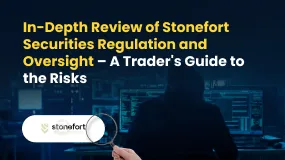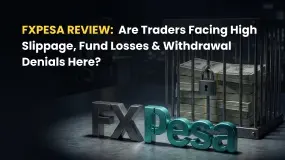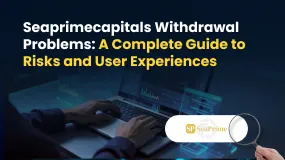简体中文
繁體中文
English
Pусский
日本語
ภาษาไทย
Tiếng Việt
Bahasa Indonesia
Español
हिन्दी
Filippiiniläinen
Français
Deutsch
Português
Türkçe
한국어
العربية
What's the Difference Between a Forex Demo Account and a Live Account?
Abstract:Demo accounts are designed to be used as training platforms where users may put themselves to the test, assess their strengths and weaknesses, and experiment with new techniques. Is it true that demo trading accounts are "real"? Yes and no: prices are correct and live market quotations are available, but they are delayed. Executions are quicker and faster, but traders typically outperform actual trading accounts since there is no real risk, with all of the psychological consequences it entails.
It's critical to know the difference between Forex demo and real accounts so you know exactly what you're getting and what you're losing out on when you start practicing trading in a demo account.
When you go from a Forex demo account to a genuine real money account, you don't want to be startled by what you find. Brokers often use two data streams, one for the demo account and the other for the live account.
The following are the main distinctions between Forex demo and actual accounts:

Your Demo Orders Will Always Be Fulfilled
In demo accounts, there are no liquidity issues, and Forex brokers seldom requote rates. Live trading, on the other hand, responds to actual counterparties, and if you wish to sell a position, you must first find a buyer. Liquidity might be scarce at times, forcing brokers to requote rates.

Speed of Execution
Traders do not have to worry with counterparts, broker liquidity, or volume differentials because demo accounts simply reflect what is happening in the actual trading environment. Orders placed on demo accounts are frequently performed extremely instantaneously as a result of this. You simply click it, and it is yours.
When it comes to genuine trading accounts, however, retail traders are up against thousands of other traders who are also looking to earn money. Execution might be sluggish in this scenario, depending on market circumstances and your Forex broker's operations.
Because why not, Slippage Demo accounts honor your orders; you enter and leave at the same price you see when you click the button. The broker stands to gain nothing by participating. Slippage can, however, occur in real-money live accounts. When entering a market order or a stop or limit order that you have previously entered at a specified price, you may obtain a different entry or exit price from the one you see. This is due to the fact that brokers must deal with liquidity and other parties in order to fulfill your trade request.
Orders to Prevent Loss
In fast-moving markets, real accounts may have difficulty executing stop loss orders since the prices offered may not always match the prices traders demand. Demo accounts do not have this problem because they are in a controlled environment.
Different prices exist.
On live accounts, most brokers provide real-time pricing, however prices in demo accounts may be delayed by a few minutes. The demo feed is still based on the live feed, although it is occasionally delayed in reflecting current market prices due to the usage of a separate pricing feed. Despite the fact that large banks have their own Forex price feeds, without a central price feed, they can't differ too much or risk being arbitraged away.
Live and Demo Forex Trading Accounts with Differential Spreads
Demo accounts often have smaller and lower spreads that don't change. To avoid being deceptive in their marketing, most brokers employ conventional spreads in demonstrations. However, in real money live accounts, the same broker may utilize variable spreads that expand during periods of high volatility or narrow in exceptionally liquid markets, but spreads in demo accounts tend to keep the same regardless of real market circumstances.
In live accounts, spreads are produced by the interplay of several variables between buyers and sellers, such as volume, volatility, and trading time. It changes at all times. This does not occur in demos since reported prices are just duplicated rather than being generated by any genuine dynamic or interactive procedures.
Even when both platforms use the same spread protocols, demo accounts may fail to reproduce the spread structures of genuine accounts. Remember that most Forex brokers offer distinct data streams for demo and real accounts.

Psychology
There is a significant difference between successfully trading with a demo account and trading with real money. Even though the prices are essentially the same in both, and you should be able to trade effectively in both, psychological variables make the two experiences seem radically different for the great majority of people. The distinction is arguably best highlighted by an old trading joke about a trader who boasts about being able to hit a wine glass with a rifle from a hundred yards out. Yes, says another trader, but can you do it when the wine glass is aimed at your heart? The bullet in your heart, in trading terminology, represents the possibility of losing real money - a genuine possibility in live accounts, but not in a demo account.
Opening a Forex demo account is an excellent way to begin your trading career. You will begin the process of learning how to trade if you take it seriously, and you will gain from it. It's not difficult to locate reliable Forex brokers who provide free demo accounts. However, due of the differences between Forex demo and real accounts, there are some abilities that you will not learn until you trade a genuine, live account with your own money on the line. Starting with a demo account is similar to learning to ride a bicycle with training wheels. When you first start, you'll need the training wheels, but even once you remove them, there's still a lot to learn.
Disclaimer:
The views in this article only represent the author's personal views, and do not constitute investment advice on this platform. This platform does not guarantee the accuracy, completeness and timeliness of the information in the article, and will not be liable for any loss caused by the use of or reliance on the information in the article.
Read more

In-Depth Uniglobe Markets Commission Fees and Spreads Analysis – What Traders Should Really Know
For experienced traders, the cost of execution is a critical factor in broker selection. Low spreads, fair commissions, and transparent pricing can be the difference between a profitable and a losing strategy over the long term. This has led many to scrutinize the offerings of brokers like Uniglobe Markets, which presents a tiered account structure promising competitive conditions. However, a professional evaluation demands more than a surface-level look at marketing claims. It requires a deep, data-driven analysis of the real trading costs, set against the backdrop of the broker's operational integrity and safety. This comprehensive Uniglobe Markets commission fees and spreads analysis will deconstruct the broker's pricing model, examining its account types, typical spreads, commission policies, and potential ancillary costs. Using data primarily sourced from the global broker inquiry platform WikiFX, we will provide a clear-eyed view of the Uniglobe Markets spreads commissions prici

In-Depth Review of Stonefort Securities Regulation and Oversight – A Trader's Guide to the Risks
For experienced traders, the process of selecting a new broker transcends a simple comparison of spreads and leverage. It is a meticulous due diligence exercise where the integrity of the broker's regulatory framework is paramount. Stonefort Securities, a relatively new entrant in the crowded brokerage space, presents a complex and often contradictory profile. On one hand, it boasts a modern MT5 platform and a stream of positive user testimonials. On the other hand, it is shadowed by severe regulatory warnings that question the very foundation of its operations. This in-depth review focuses on the core issue for any long-term trader: Stonefort Securities regulation and oversight. We will dissect the broker's corporate structure, scrutinize its licensing claims, and analyze what the data implies for trader protection and fund security. For traders evaluating whether Stonefort Securities is a trustworthy partner, understanding these details is not just important—it is essential.

FXPesa Review: Are Traders Facing High Slippage, Fund Losses & Withdrawal Denials?
Do FXPesa support officials fail to pick up your calls when you raise fund withdrawal requests with the broker? But are these officials always open to you regarding fund deposits? Do you frequently spot slippage and stop-loss order execution errors on the FXPesa login? These issues are increasingly becoming common with this forex broker. Consequently, many traders have expressed their dissatisfaction with the broker online. In this FXPesa Review article, we have shared some of these complaints. Take a look!

Seaprimecapitals Withdrawal Problems: A Complete Guide to Risks and User Experiences
Worries about Seaprimecapitals withdrawal problems and possible Seaprimecapitals withdrawal delay are important for any trader. Being able to get your money quickly and reliably is the foundation of trust between a trader and their broker. When questions come up about this basic process, it's important to look into what's causing them. This guide will tackle these concerns head-on, giving you a clear, fact-based look at Seaprimecapitals' withdrawal processes, user experiences, and trading conditions. Most importantly, we'll connect these real-world issues to the single most important factor behind them: whether the broker is properly regulated. Understanding this connection is key to figuring out the real risk to your capital and making a smart decision.
WikiFX Broker
Latest News
In-Depth Uniglobe Markets Commission Fees and Spreads Analysis – What Traders Should Really Know
WikiFX's New Evaluation of ATM Capital LTD: Does its License Protect the Arab Investor?
Is Axi Legit? A Data-Driven Analysis of Its Regulatory Standing and Trader Feedback
How a Fake Moomoo Ad Led to the “New Dream Voyage 5” Scam
FXPesa Review: Are Traders Facing High Slippage, Fund Losses & Withdrawal Denials?
Trive Investigation: High Score, Hidden Risk - The Profit Paradox
CMC Markets Australia Revenue Surges 34%, But High-Net-Worth Clients Face Tax Phishing Threat
Bessent believes there won't be a recession in 2026 but says some sectors are challenged
mBank Exposed: Top Reasons Why Customers are Giving Thumbs Down to This Bank
Young Singaporean Trader Grew USD 52 into a USD 107,700 Portfolio
Currency Calculator



